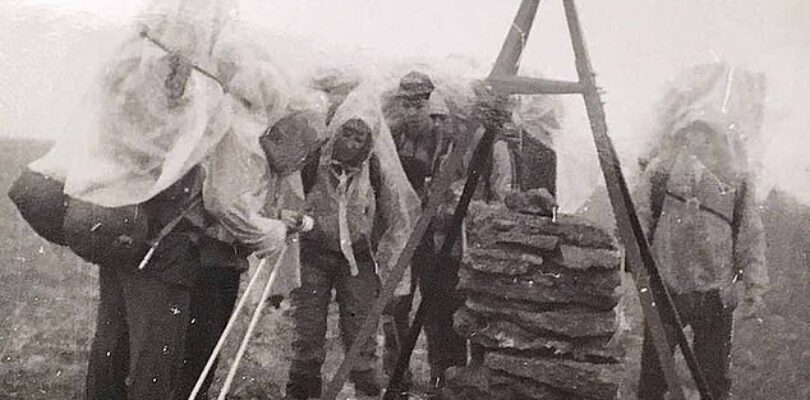Valentina Utochenko’s life changed forever when she heard the bloodcurdling scream from the back of her hiking group.
Fear and adrenaline rushed through the then-21-year-old’s body as she stood, frozen to the spot, and watched blood pour from her friend’s eyes and ears.
To her horror, Alexander Krysin fell to the floor in a fit, writhing around in the crisp mountain snow for a minute before going limp.
One by one, the rest of her seven-person group began doing the same.
She could do nothing but witness the tragedy in terror.
Valentina, 17, along with 24-year-old Tatyana Filipenko, 23-year-old Alexander Krysin, 19-year-old Denis Shvachkin, 17-year-old Viktoriya ‘Vika’ Zalesova, 16-year-old Timur Bapanov, were being lead through Russia’s Khamar-Daban mountain range for a hike by Lyudmila Korovina.
What she thought would be a bracing jaunt through the scenic mountains of Russia ended up becoming the defining and most traumatising chapter of her life.
The seven Kazakh youngsters had arrived to the remote Russian region of Irkutsk just a week before the tragedy unfolded in August 1993.
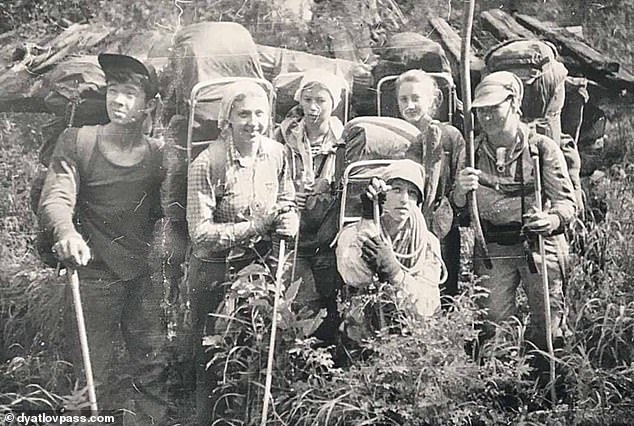
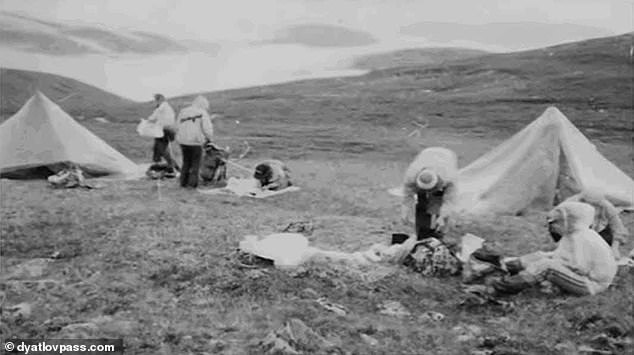

Their aim was to journey across the Khamar-Daban mountain range.
Valentina said in an interview after the deadly incident that the group were well-prepared for their journey.
She told Russia 1: ‘We had gone on hikes before. We had never had any life-threatening situations.
‘Everything was thought out down to the smallest detail: from shoes to underwear.’
After setting off from the small town of Murino, which sits on Lake Baikal, on August 2 that year, they planned to traipse up the Langutai river before passing through the Langutai Gates pass.
Then, they were set to cross to another river, the Barun-Yunkatsuk river, before beginning a long march up the Khanulu mountain and along its ridge.
Their arduous journey would’ve ended in the city of Slyudyanka, on the plateau of the Anigta and Baiga rivers.
In total, their route would’ve taken them though roughly 70 miles of dense forests and snowcapped mountains.
And they were meant to meet up with another group, led by Lyudmila’s daughter Natalia.
Though the first two days of the hike led by Lyudmila went well, making good time up the Retranslyator peak through sun and clear skies that made their journey relatively easy.
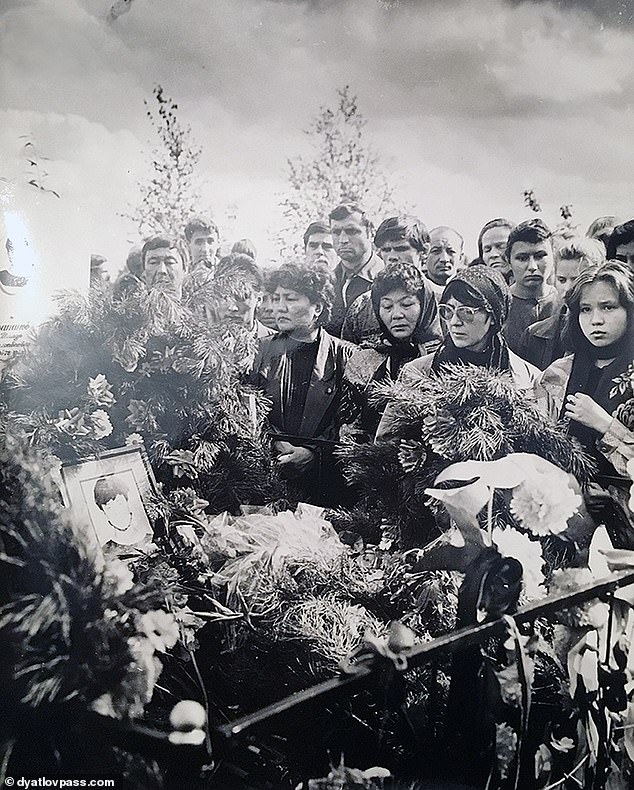
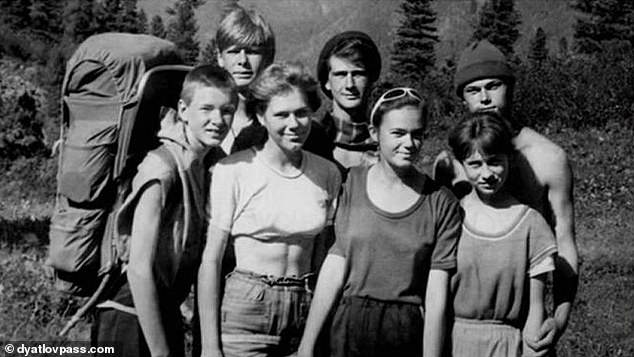
But the group was suddenly subjected to an unexpected rainstorm.
This freak weather event soaked their bags and equipment through, forcig the team to change tack, and they decided to make camp.
But despite being an experienced hiker, Lyudmila set her group up at an exposed location, drastically increasing the challenge of surviving.
Valentina wrote in a statement to investigators: ‘We stopped at a height without a forest, pitched two tents. At 4am, the tent guy lines broke. We fixed them. At 6am, the stake was torn out. The sleeping bags were wet.’
Unable to build a fire that night, the team hunkered down in miserable weather, before finally being able to get a blaze going in the early hours of the morning of August 5.
After cooking breakfast and eating together, they started to carry on down their path.
But at 10am that day, Valentina’s life changed forever.
At an altitude of 2,396m (7,861ft), Krysin let out a harrowing screech from the back of the group.
The others quickly turned around, and to their horror they saw he was bleeding from his eyes and ears, and was frothing from his mouth.
After several seconds of this, he collapsed and convulsed violently for a few seconds before going still.
Lyudmila, terrified that one of her group had suddenly and violently collapsed under her watch, ran over to check on him.
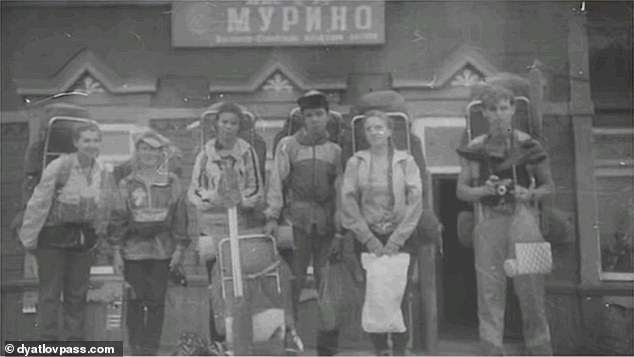

Seconds after going to him and trying to wake him up, she too began screaming before bleeding from her own ears and eyes and foaming at the mouth, before going limp and collapsing on top of him.
Filipenko was the next to collapse, though her symptoms were far more terrifying.
She began to claw at her own throat, as if she were choking.
According to Valentina’s account of the tragedy, she then crawled to a nearby rock and bashed her head into it over and over against until she was lifeless.
Two others, Zalesova and Bapanov, ran away in a fearful frenzy.
But whatever had killed the others quickly got them.
Both of them collapsed, threw up blood and clawed and their own throats before tragically dying.
Valentina and Shvachkin hurried away, but shortly after Shvachkin also collapsed convulsing.
The terrified lone survivor, having watched her friends perish one by one, was left to fend for herself in the harsh, remote mountains.
She knew it would take her several days to get to safety, and decided to hunker down for the night to get some rest.
She was forced to make the difficult decision to return to the site of her friends’ deaths to collect supplies to make her way back to civilisation.
‘In the morning, I went up, saw Tanya on the rocks, Denis, Timur, Vika. Higher up – Sasha and Korovina,’ Valya said.
In a poignant act of humanity, she made sure to close all their eyes before trekking back.

For four long days, she used her dead friends’ supplies to survive as she followed power lines back down the mountains in the hopes that someone would find her.
After finding a nearby river, she began following it to its mouth, before being found by a group of Ukrainian kayakers.
‘When I remember this picture, my heart sinks. There was a girl standing on the shore, screaming and waving her arms,’ said Alexander Kvitnitsky, a kayaker from Kyiv who found her.
‘When we got to the shore, she rushed to one of our participants and cried for a long time on her chest. She was incoherently telling us that people had died and that she was scared.’
He and his group took her to the closest police station to file a report on her friends’ tragic ends.
It took her several days to even croak out the necessary information for police to begin their investigation.
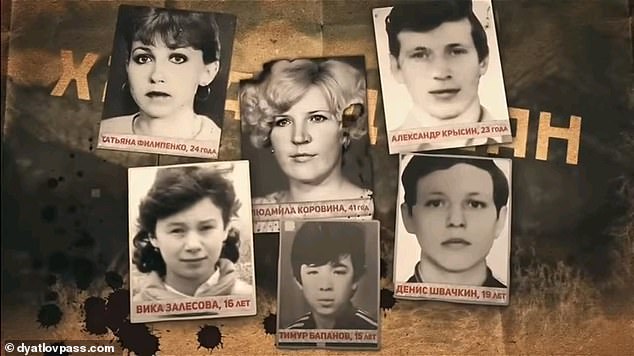
It was another two weeks before local cops began investigating the tragedy, and a further two days for them to find the bodies using helicopters.
When they were found, the corpses were partially undressed, exposed to the elements.
‘It was a terrible picture. The guys were lying on a small ledge, some pressed close to each other, some a little further away,’ Yuri Golius, in charge of the search, told journalists at the time.
‘No eyes. Worms were crawling in the empty eye sockets and slightly open mouths.’
After they were taken back, all the dead hikers were found to have signs of bruised lungs and a protein deficiency.
A coroner concluded that almost everyone died of hypothermia, except for Lyudmila – she was found to have died of a heart attack.
In the wake of their terrifying, unexplained deaths, many began to speculate as to how they died, with theories ranging from simple medical maladies to nerve agent poisoning.
One of the first explanations for their deaths was hypothermia, which they may have suffered after not properly sheltering on the night of the storm.
In extreme cases of hypothermia, sufferers often undergo vivid hallucinations.
People also undergo what is known as paradoxical undressing, which is when sufferers of hypothermia feel a sudden need to take their clothes off despite being in biting cold conditions, which perhaps explains why the bodies were found partially undressed.
But Valery Tatarnikov and Vladimir Zinov, two rescuers who took part in the search operation for the bodies, claimed that it was impossible for the hikers to die of cold.
Zinov instead suggested the group died of altitude sickness.
Vladimir Borzenkov, a tourist in the area, and Nikolai Fedorov, a man who was also part of the search operation, suggested that the hikers went mad due to infrasounds that constantly played in their ears.
‘Individual rocks under a strong wind can become an infrasound generator of enormous power, which causes a state of panic and unaccountable horror in a person,’ Fedorov said.
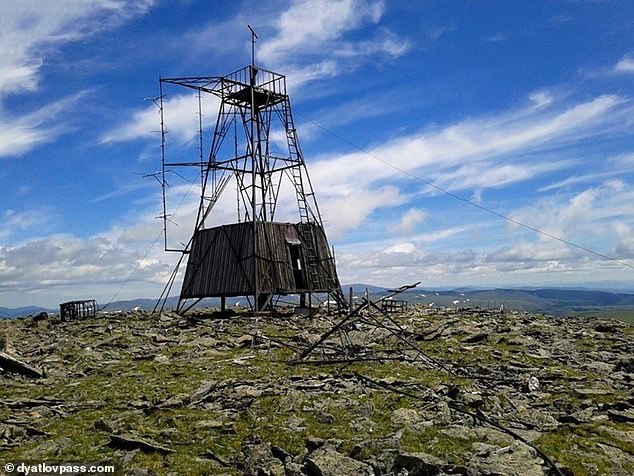
‘According to the girl who survived, her friends behaved restlessly, their speech was incoherent.’
Yuri Golius, the leader of the search operation, publicly blamed Korovina for being negligent.
He said that her inaction led the group to suffer from a vitamin deficiency.
But in a 2018 interview for a Russian magazine, Valentina denied this, instead revealing that it was her belief that the group died after each suffering a pulmonary oedema.
One theory claimed that the group may have been killed by a nerve agent.
The deadly nerve agency Novichok was tested in the region.
The gas-based poison could’ve been left by Russian scientists, and often takes months to dissipate.
But for Valentina, the answer to the question of how exactly her friends died is entirely irrelevant.
It was, and will forever be, a ‘nightmare’, and figuring out the cause of their deaths is a fruitless endeavour.
‘What’s the point? It’s all useless,’ she said. ‘You can’t get them back.’

